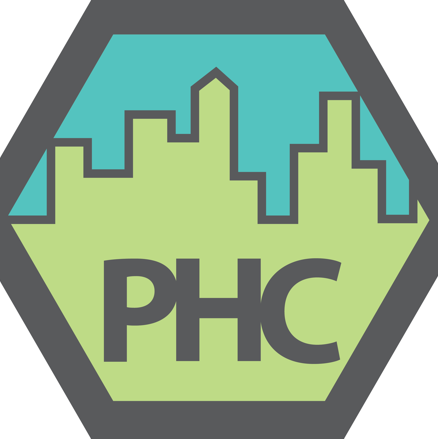- Location
- Toronto, Ontario, Canada
- Bio
-
James Rhule is the founder and Chief Idea Officer of Project: Human City. He studied Urban and Regional Planning at Ryerson University. Wanting to make a greater impact for the underrepresented public, he designed an organization to meet the needs of all people living together, rather than following traditional means. James has worked for the City of Toronto for ten years. His professional interests include particle physics, algorithms and human interactions. When not designing impact initiatives for Project: Human City, James enjoys reading, writing, cooking and spending time with his three young nephews.
- Companies
-
-
 Toronto, Ontario, Canada
Toronto, Ontario, Canada
-
- Categories
- Mobile app development Information technology Artificial intelligence Databases Hardware
Socials
Achievements
Latest feedback
Project feedback
Project feedback
Project feedback
Recent projects
CityLayer Mobile App Development
Project: Human City is seeking a team of mobile development learners to create a mobile version of its existing web application, CityLayer. CityLayer is a platform designed to enhance urban living by providing users with real-time data and insights about their city. The goal of this project is to make CityLayer accessible on mobile devices, allowing users to access its features on-the-go. The mobile app should maintain the core functionalities of the web app while optimizing for mobile user experience. This project provides an opportunity for learners to apply their knowledge of mobile development, user interface design, and user experience optimization. The team will focus on developing a user-friendly interface, ensuring seamless integration with existing web services, and optimizing performance for mobile devices.
AI-Powered Reputation System for Task Assignment
Project: Human City aims to enhance its mobile app, Coquest, by developing an AI-powered reputation system. Coquest is a platform that crowdsources projects, programs, and co-ops, and the current challenge is to efficiently assign tasks to users based on their reputation. The goal is to create a system that evaluates user contributions and interactions to generate a reputation score. This score will then be used to match users with tasks that align with their skills and reliability. The project will involve designing algorithms that assess user behavior, participation history, and feedback to ensure fair and effective task distribution. By implementing this system, Coquest seeks to improve user engagement and project success rates.
CityLayer Development and Marketing Initiative
The CityLayer Development and Marketing Initiative aims to assist Project: Human City in creating a software service designed to enhance the operational efficiency of city administrations. The project focuses on developing a user-friendly interface and robust backend for the CityLayer platform, ensuring it meets the needs of municipal employees. Students will apply their software development skills to build key features such as data management, reporting tools, and communication modules. Additionally, the project includes a marketing component where students will devise strategies to effectively promote CityLayer to potential city clients. This involves researching target markets, creating promotional materials, and developing a digital marketing plan. The goal is to provide a comprehensive solution that not only functions seamlessly but also reaches its intended audience effectively.
Smart Relocation Strategy for Urban Growth
The project aims to develop a strategic plan for cities that incentivize new residents to relocate using Project: Human City's suite of apps—SpotStitch, CoQuest, Lotus Learning, and CityLayer. These apps are designed to enhance community and capacity building. The goal is to create a comprehensive relocation plan that leverages these digital tools to attract and integrate new residents effectively. The project will involve analyzing the functionalities of each app and determining how they can be utilized to support city growth and community engagement. The team will focus on creating a cohesive strategy that aligns with urban development goals and enhances the quality of life for new settlers. - Analyze the functionalities of SpotStitch, CoQuest, Lotus Learning, and CityLayer. - Develop a strategic plan for using these apps to attract new residents. - Align the relocation strategy with urban development and community engagement goals.
